from 0 review
11 Days / 10 Nights
English, Urdu
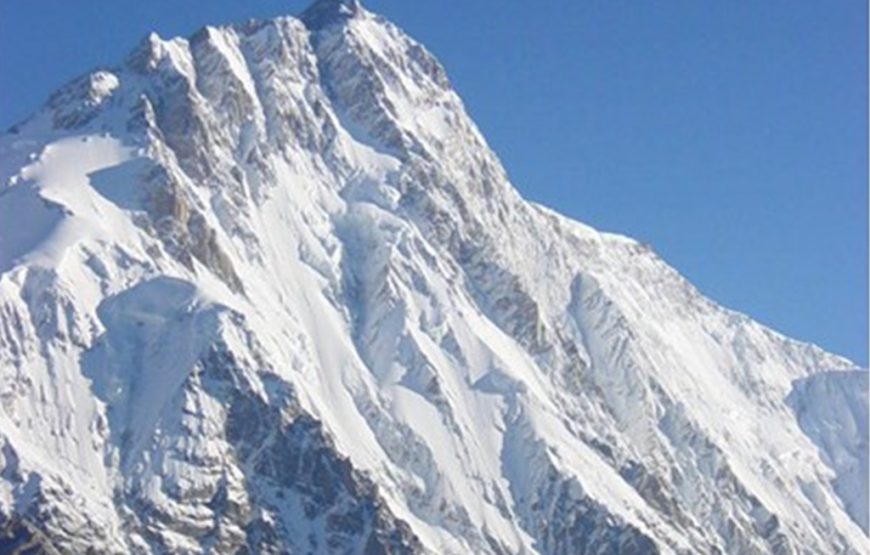
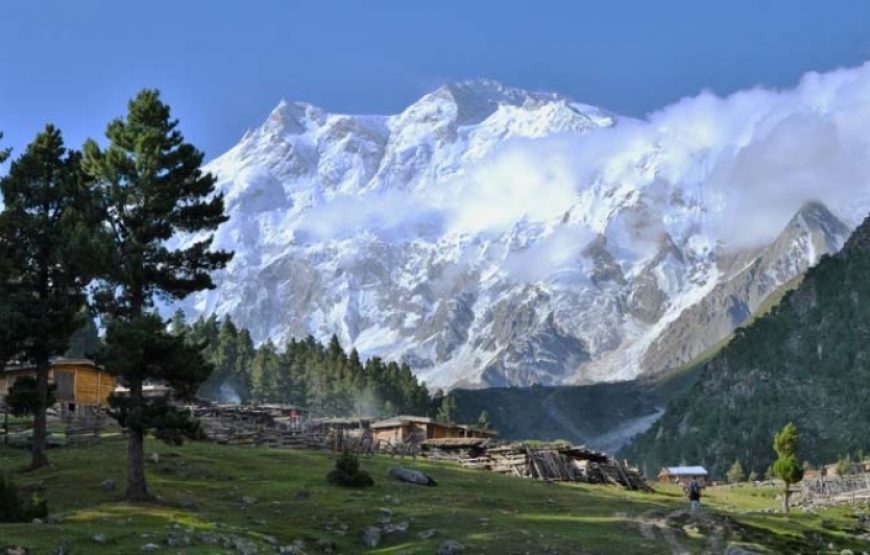
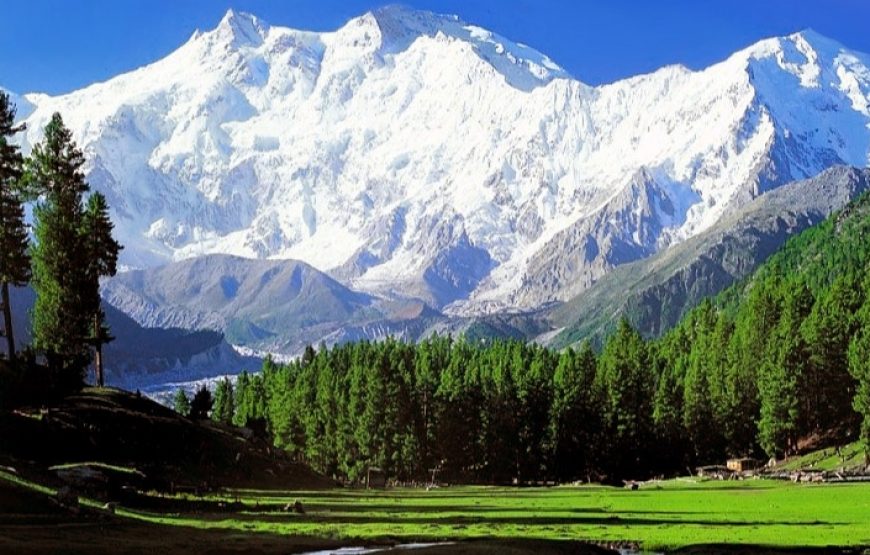
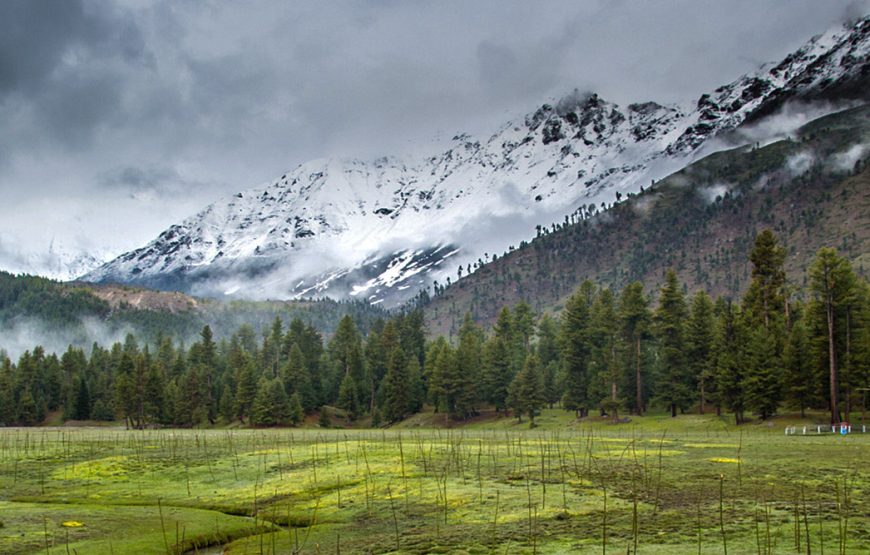
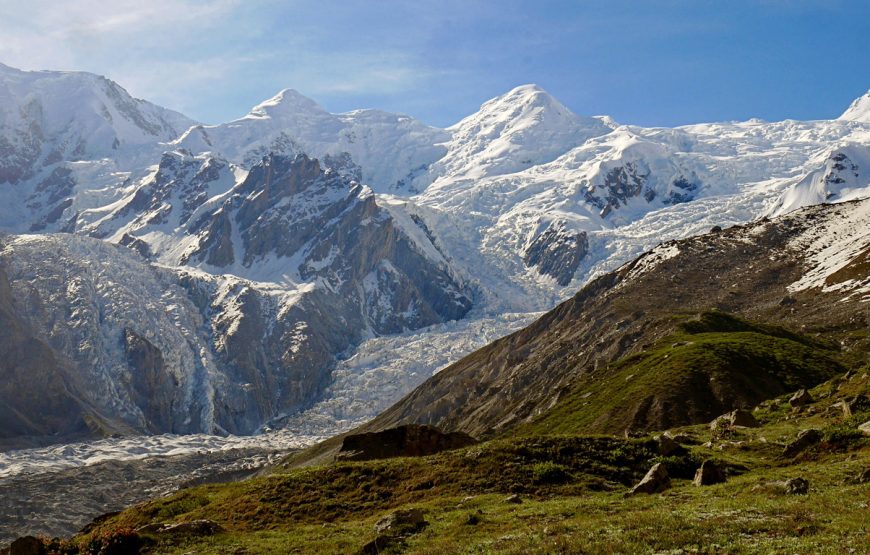
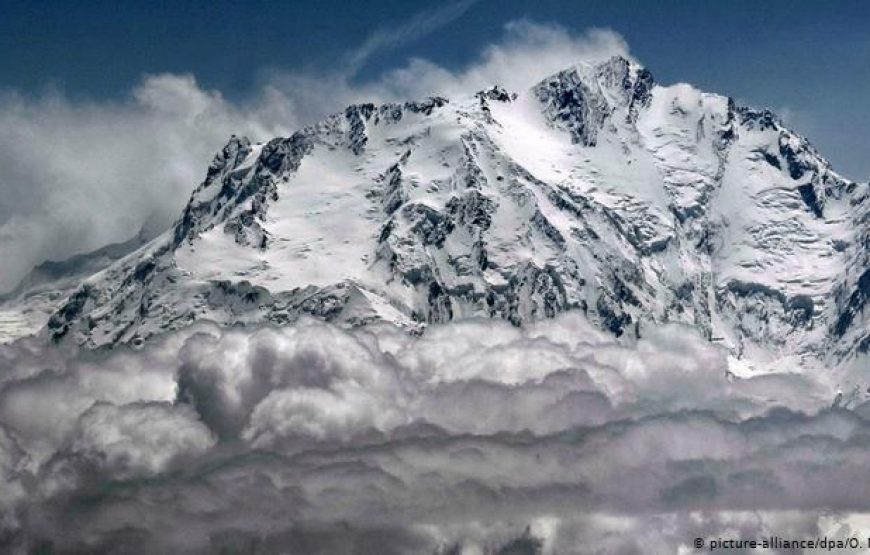
The Nanga Parbat Rupal Face Trek is an adventurous and challenging trek in Pakistan that takes you to the southern side of Nanga Parbat (8,126m), also known as the Rupal Face. Nanga Parbat (killer Mountain) is the second-highest peak in Pakistan and the ninth-highest in the world. It is known as the “Naked Mountain” because of its steep and barren slopes.
Nanga Parbat is not a single peak but a long series of ridges extending over 20 kilometers, culminating in an ice crest at 8,126 meters. The mountain has three main faces: Raikot Face, Diamer Face, and Rupal Face.
The Rupal Face is the southern side of Nanga Parbat and rises to about 5,000 meters. This trek takes you through the picturesque Rupal Valley, where lush green potato fields are a common sight. The journey to the base camp of Nanga Parbat’s Rupal Face takes approximately 5-6 hours on foot, providing you with a close-up view of the massive peak.
One of the highlights of this trek is the Mazino Pass, which is the highest point of the journey. Tarishing Village serves as the gateway to Nanga Parbat, and the Rupal River is a beautiful tourist attraction in the region.
The Rupal Face of Nanga Parbat is renowned for being the largest rock face in the world, and it is considered one of the most technically challenging and difficult climbing routes. Unlike the more popular Fairy Meadows, this trek is less frequented by tourists and is often explored by locals and experienced trekkers.
Overall, the Nanga Parbat Rupal Face Trek offers a unique and awe-inspiring experience for adventure seekers, with stunning views of the Rupal Face and the surrounding natural beauty. It’s a challenging but rewarding journey for those looking to explore this remote and impressive region of Pakistan. Enjoy the trek and take the lifetime memorable experience back home.
Upon arrival at Islamabad International Airport, you will be warmly welcomed by our representative. After a brief meet-and-greet, transfer to the hotel for check-in. Depending on your arrival time, you may have the opportunity for a short orientation walk or rest. Overnight stay in Islamabad.
After an early breakfast, begin a full-day scenic drive to Chilas. The route will either be via the legendary Karakoram Highway (KKH) or through the picturesque Babusar Pass (subject to seasonal road conditions). Stopovers will be made for photography and refreshments. Upon arrival in Chilas, check in to the hotel. Overnight stay in Chilas.
Today, continue your journey toward the breathtaking Astore Valley. The drive to Tarishing passes through jagged valleys and alpine scenery. Upon arrival in the remote village of Tarishing, check in to a local guesthouse or hotel and prepare for the upcoming trek. Overnight stay in Tarishing.
Following breakfast, local porters will be arranged, and the trek begins towards Herrlig Koffer Base Camp. The trail offers spectacular views of the Nanga Parbat massif and leads through alpine meadows and glacial streams. Meals and overnight accommodation will be provided in tents at the base camp.
Begin your trek from Herrlig Koffer Base Camp to the stunning campsite of Shaigiri, situated beneath the towering peaks of the western Himalayas. The landscape becomes more dramatic with glaciers, rocky terrain, and panoramic mountain views. Overnight stay in tents at Shaigiri.
After breakfast, continue your trek toward Latobah. This leg of the journey includes a combination of forested sections and open pastures, with views of snow-capped peaks. Latobah is a serene and lesser-known campsite, ideal for reflection and relaxation. Meals and overnight in tents.
Today, begin your return trek from Latobah back to Tarishing. The descent offers a fresh perspective of the Astore Valley’s dramatic scenery. Upon reaching Tarishing, transfer to your hotel for a hot shower and well-deserved rest. Overnight stay in Tarishing.
After breakfast, depart from Tarishing and retrace your route to Chilas. Enjoy the last views of Astore Valley’s wilderness. Upon arrival in Chilas, check in to the hotel. Overnight stay in Chilas.
Early morning departure for Islamabad via Babusar Pass or the Karakoram Highway. The journey will take most of the day, with breaks for meals and photography. Arrive in Islamabad by evening and transfer to the hotel. Overnight stay in Islamabad.
Spend the day exploring Pakistan’s capital city. Visit prominent landmarks such as Faisal Mosque, Pakistan Monument, Lok Virsa Museum, and Daman-e-Koh for panoramic city views. Optional shopping at local bazaars in the evening. Overnight stay in Islamabad.
After breakfast, you will be transferred to Islamabad International Airport for your flight home. End of services.
Thoughtful thoughts to your inbox